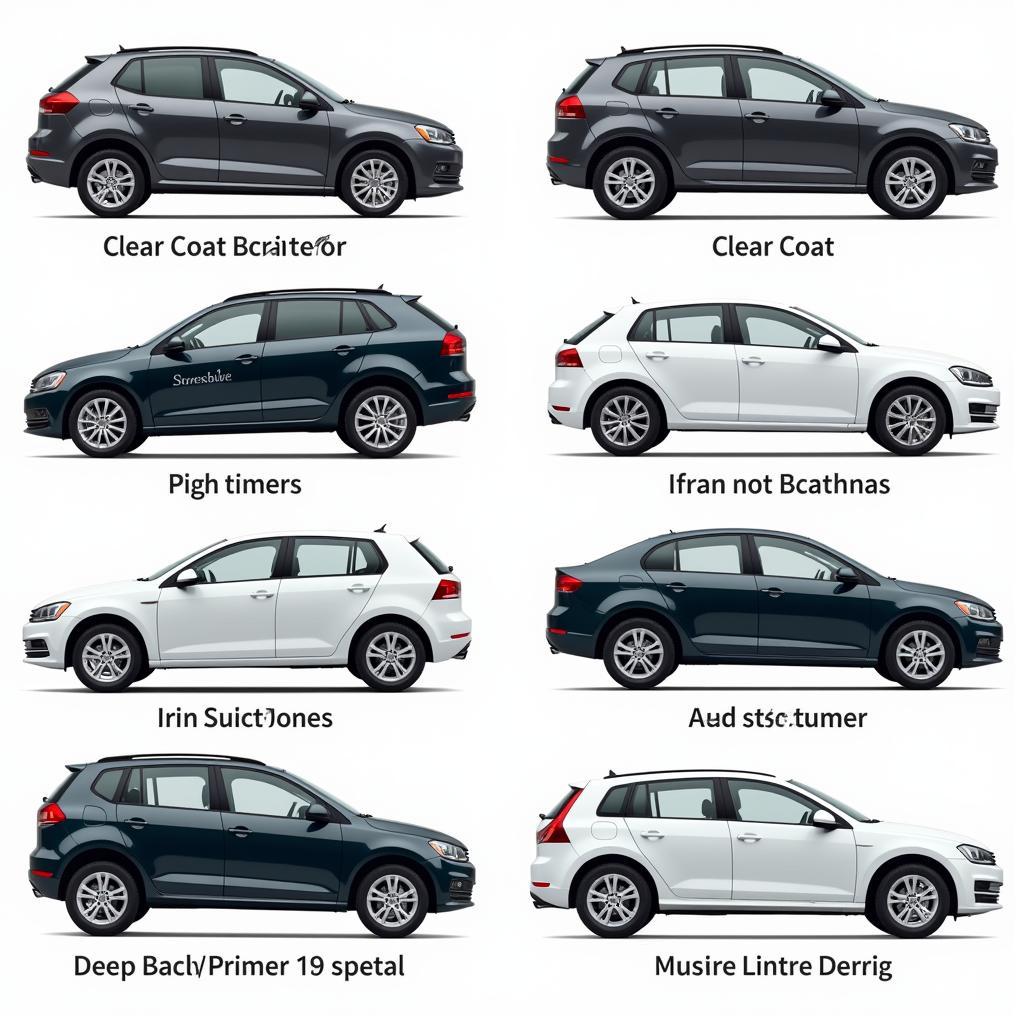Car Brake Problems Diagnosis can be tricky, but understanding the basics can save you time and money. This guide provides a comprehensive overview of common brake issues, diagnostic techniques, and troubleshooting tips. We’ll cover everything from squeaky brakes to a soft brake pedal, empowering you to address your car’s braking system effectively.
Understanding Your Car’s Braking System
Before diving into car brake problems diagnosis, it’s helpful to understand the components involved. Your car’s braking system is a complex network of hydraulics, mechanical parts, and electronics. Key components include the master cylinder, brake lines, calipers, rotors, drums, and brake pads or shoes. Each part plays a crucial role in slowing or stopping your vehicle.
What are the common signs of brake problems? Some telltale signs include squeaking or grinding noises, a pulsating brake pedal, a soft or spongy brake pedal feel, and pulling to one side while braking. Recognizing these symptoms early can prevent more serious issues down the line.
How the Hydraulic System Works
The hydraulic system is the heart of your brakes. When you press the brake pedal, it activates the master cylinder, which pressurizes brake fluid. This pressure is transmitted through brake lines to the calipers or wheel cylinders, forcing the brake pads or shoes against the rotors or drums, respectively, creating friction and slowing the car. car brake sound problem offers a helpful article on sounds your car brakes make.
Common Car Brake Problems and Diagnosis
Now let’s delve into specific car brake problems diagnosis scenarios. Several common issues can plague your braking system, each with its unique set of symptoms.
Soft Brake Pedal
A soft or spongy brake pedal often indicates air in the brake lines. This can happen due to leaks, worn seals, or improper bleeding procedures. car brake booster problems details about issues with the brake booster that could also lead to a soft pedal.
Pulsating Brake Pedal
A pulsating brake pedal usually signifies warped rotors. This warping can occur due to excessive heat or uneven wear. Resurfacing or replacing the rotors is usually the necessary fix.
Squeaking or Grinding Brakes
Squeaking brakes can be caused by worn brake pads, glazed rotors, or simply dust and debris. car brake shoes problems may explain your issue if your vehicle is equipped with drum brakes instead of disc brakes on the rear wheels. Grinding, however, is a more serious sign of metal-on-metal contact, indicating severely worn brake pads and potential damage to the rotors.
Pulling to One Side While Braking
Pulling to one side while braking can be caused by a stuck caliper, uneven brake pad wear, or a problem with the hydraulic system on one side of the car.
“Ignoring brake problems can lead to dangerous and costly consequences,” warns John Smith, ASE Certified Master Technician. “Regular inspections and timely repairs are crucial for maintaining a safe and reliable braking system.”
Diagnosing Brake Problems Yourself: A Step-by-Step Guide
While some car brake problems diagnosis requires specialized tools and expertise, you can perform basic checks yourself.
- Visual Inspection: Check the brake pads and rotors for wear and tear.
- Brake Fluid Level: Ensure the brake fluid reservoir is full. Low fluid can indicate a leak.
- Brake Pedal Test: Pay attention to the pedal feel. Is it soft, spongy, or pulsating?
- Listen for Noises: Note any squeaking, grinding, or other unusual sounds while braking.
“A little preventative maintenance goes a long way,” advises Sarah Jones, Automotive Engineer. “Regularly checking your brake fluid and inspecting your brake pads can help you catch problems early and avoid more expensive repairs down the line.”
Conclusion
Car brake problems diagnosis doesn’t have to be a daunting task. By understanding the common issues and following the diagnostic tips outlined in this guide, you can effectively troubleshoot your car’s braking system. Remember, a properly functioning braking system is essential for your safety. For professional assistance or further inquiries, connect with AutoTipPro at +1 (641) 206-8880 or visit our office at 500 N St Mary’s St, San Antonio, TX 78205, United States. car problem for a long time and find it meme provides lighthearted humor on automotive frustrations and diagnosis. car engine noise problem is another valuable resource if you think other issues may exist within your car. Don’t delay addressing brake issues; your safety depends on it!





Leave a Reply